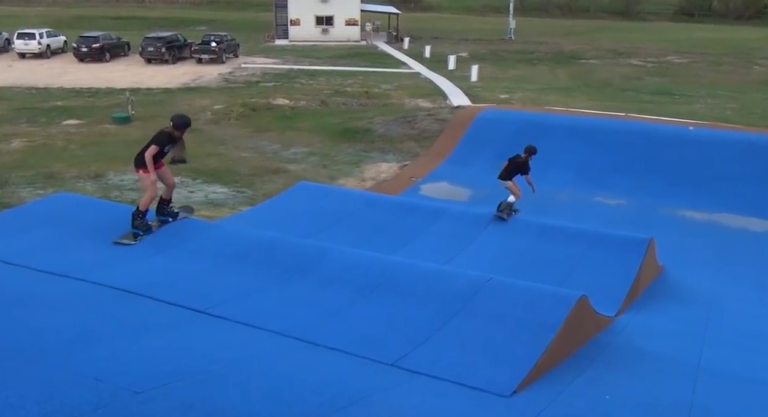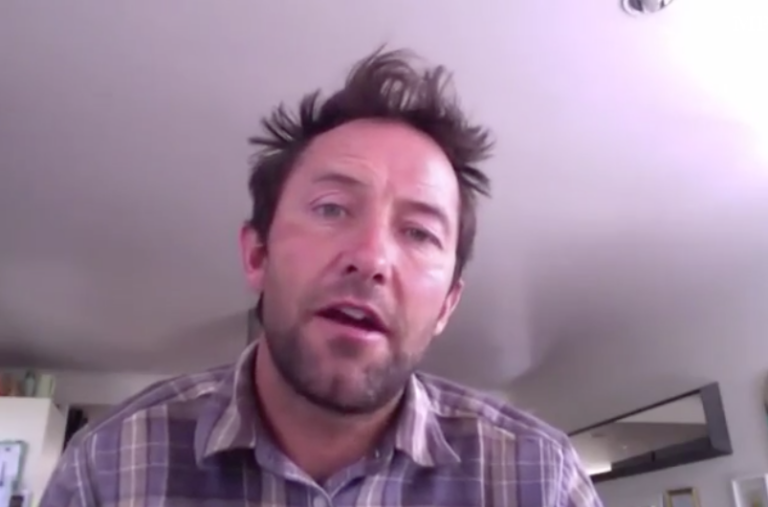Paddy Mortimer, the performance director of British Ski and Snowboard – the sport’s official governing body, has found himself in hot water recently. There have been various accusations from alpine skiers flying around in the press, and even some calls for him to resign. Having spent time with Paddy in Sochi, Whitelines’ Deputy Editor Tristan thought he’d give him a chance to answer the criticisms.
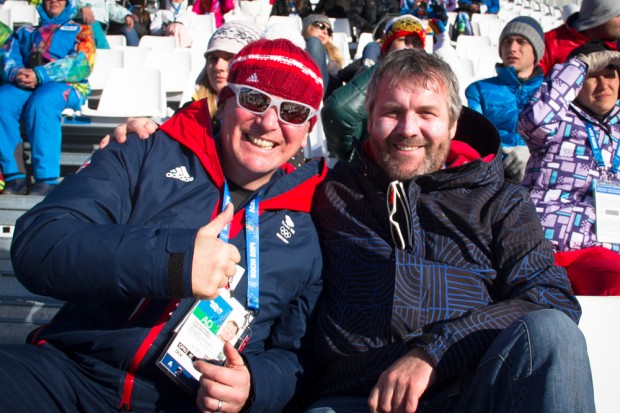
When I sat down to interview Olympic bronze medallist and hero of the hour Jenny Jones last week, I asked her if she wanted to give any shout-outs. Jenny kept it mercifully short (she is Jenny after all, she’s far too down to earth to give us the full Kate Winslet) but she did want to make a special mention of a few people.
She thanked her team-mates (Aimee, Billy, Jamie and the skiers) coaches and support staff. But she also made a point of thanking Paddy Mortimer – British Ski and Snowboard’s Performance Director.
That Paddy’s name was included in this small, select group may come as a surprise to some people (people who perhaps know him mostly for his public chiding of Jamie Nicholls on Twitter, and the shit-storm that followed) but it shouldn’t. Both out in Sochi and back in the UK Whitelines repeatedly heard his name mentioned as one of those whose tireless work behind the scenes was instrumental in helping British snowboarding (and in fact British snowsports more generally) enjoy its most successful Olympics ever.
Firstly, he played a key part in securing the government funding that got the team to the Games in the first place. As he put it down the phone from Sochi, he sees himself as “a translator” – someone who listens to what the riders and coaches want and “puts that forward in a way that funding agencies can understand. I’m like the go between acting between the sports side and the corporate side,” he told us. Government funding was cut to absolutely zero after the last Olympics, so having someone who can speak the language of UK Sport (the body responsible for deciding which sports are most deserving of taxpayers’ money) was massively important.
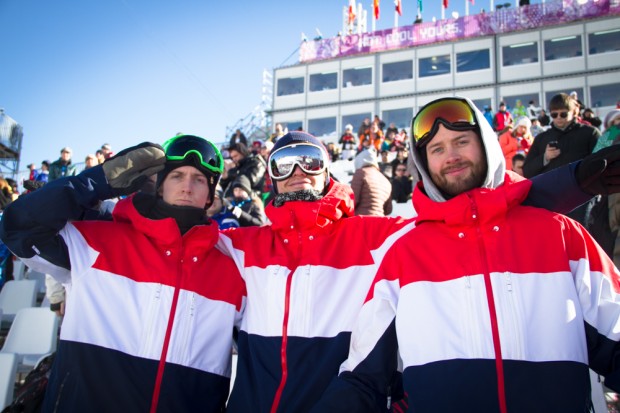
“Our initial award from UK Sport was about £300,000 for the Park & Pipe program [which includes freeskiing as well as snowboarding] for six months,” Paddy told us. “They said ‘OK, see what you can do. Justify it.’ So we were constantly having to justify the funding every few months. But we did and in total we’ve had £1.5 million over the past two and a half years.”
Unsurprisingly given the results, the powers that be have been seriously impressed. “They’ve been in attendance throughout these games. And Liz Nicholls [the chief executive of UK Sport] has been extremely supportive of slopestyle especially – both ski and snowboard – and what that’s brought to Britain.”
On average a summer medal in 2012 cost UK Sport about £4 million in investment. Jenny Jones’ medal cost £1.5 million. For them it’s definitely a bargain!
Because they spend taxpayers’ money, UK Sport constantly have to prove that they’re spending it wisely and the inspirational effect of a medal (which encourages people to take up sport, stay healthy and ultimately save the NHS money in the long run) is what they’re really after – in fact, they describe themselves as being in the business of “buying medals.” And as Paddy points out, Jenny’s snowboarding medal was definitely worth their money. “On average a summer medal in 2012 cost UK Sport about £4 million in investment. Jenny Jones’ medal cost £1.5 million. For them it’s definitely a bargain!”
This might seem a mercenary way of looking at things, but it’s important to have someone fighting snowboarding’s corner who understands that it’s these dispassionate assessments – rather than the emotional impact of Jenny’s medal – that will carry weight when the sport is looking for future funding.
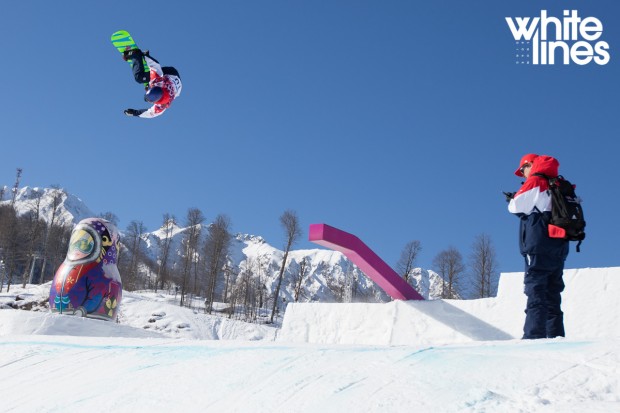
And Paddy is definitely fighting snowboarding’s corner. Having been “badly burned” by the Jamie Nicholls incident, where he admits “I got it wrong”, he has “learned a hell of a lot”. These days he has nothing but praise for the culture that surrounds snowboarding (and freestyle skiing). “Everyone on the outside thinks the snowboarders and freeskiers in our Park & Pipe program are the wild west, but they’re not, they’re honest good folk. Of course they enjoy a laugh, and they need to, because the stuff they do is extraordinary. But it’s that attitude that allows them to do extraordinary things.” Paddy told us that these days he sees his role as protecting snowboarders’ culture and attitude – which he argues is essential for their success – from those higher up who’d seek to iron their kinks and quirks.
In fact such is his enthusiasm for the freestyle side of skiing and snowboarding that it’s recently led to accusations of bias from certain traditional alpine skiers, who also come under the BSS as a governing body. A few particularly vociferous members of the racing community, upset that more skiers didn’t make it to Sochi, kicked up a stink in the press and last week called on Paddy to resign, claiming that the Olympic qualification criteria he helped to set were unfairly strict. He’s keen to point out that any suggestion of bias is simply not true.
“Two athletes in particular didn’t make it and their parents have created a storm and they’re throwing their toys out of the pram because they didn’t make criteria. And I am sorry for them, but they had opportunities in both the Europa Cup and the World Cup to make criteria and made neither of them. And unfortunately those are the rules we set and published.”

There have also been complaints about a lack of funding, but if anything he explains, “the bias over the last 10 years has been towards alpine. The vast majority of the funding went to alpine, and it was millions over that period.” And the fact that there’s no UK Sport money for it now apparently has everything to do with results over that period, and nothing to do with him. As he explains: “I could go to UK Sport and say ‘can I pitch for funding for the whole of BSS?’ And they’d say ‘no,’ because they’re only interested in the disciplines where results are coming from. They won’t give money to anyone until they perform.”
Paddy compares the alpine skiers’ current attitude to that of snowboarders who managed with no official backing for years. “Jenny performed without any funding. And her winning the X Games was one of – if not the – catalyst that enabled us to get funding. She’s the Chris Boardman of winter sports.”
Jenny Jones is the Chris Boardman of winter sports.
The idea that Jenny’s medal could kick-start an injection of money that would help grow snowboarding in the UK in the same way Boardman’s Barcelona gold did for cycling is one that clearly excites Paddy. His priority over the next year he says will be to “create a pathway” for young shredders to get involved in skiing and snowboarding, with restructured academy programs to develop new talent. All of which of course is music to my ears.
Of course I know there are snowboarders who’ll disagree with all of this. There are people who’ll say that the sport doesn’t need the Olympics, governing bodies or people in official roles like Paddy’s. But as much as they might not like it, snowboarding is in the Olympics to stay. And as long as that’s the case I, like Jenny, am glad that there are people like Paddy. People who can represent our sport in official circles, fight its corner and help ensure that more talented kids get to do what they love for a living.
What do you think? Please share your opinions on all things funding-related in the comments section below.


